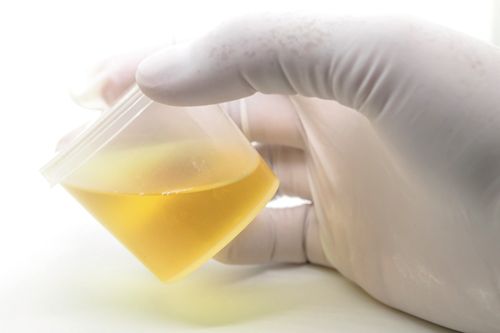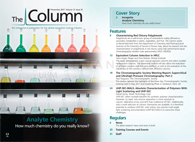Non-Invasive Cancer Detection Using Affinity Chromatography and SERS
Photo Credit: BENCHAMAT/Shutterstock.com

Researchers from Fujian Normal University, Funzhou, China, have developed a nonâinvasive cancer detection strategy based on gold nanoparticle surface-enhanced raman spectroscopy (SERS) and affinity chromatography (1).
As one of the greatest health burdens across the globe, cancer and all its forms rightly garner a large amount of clinical research attention with non-invasive and early cancer diagnosis being widely touted as necessary elements towards an effective strategy to minimize deaths. This is for obvious reasons with non-invasive procedures being much easier to carry out on a mass scale and early detection greatly increasing survival rates in most cancer cases. One area with potential is modified nucleosides, which are excreted through patient urine. An important biological matrix for determining a patient’s physical state, urinalysis is widely used in disease diagnosis. Its ease of collection aides in its usefulness as well as its ability to be continuously collected throughout an entire treatment process. However, urinary modified nucleosides are present at very low concentrations and their detection in such a complex matrix represents a significant challenge.
To achieve the necessary levels of sensitivity researchers first used affinity chromatography using a phenylboronic acid gel before analyzing samples using SERS and gold nanoparticles as a substrate.
To evaluate the utility of this method, urine samples from three groups of subjects were tested. These included nasopharyngeal cancer patients, esophaegeal cancer patients, and healthy volunteers. Results achieved diagnostic sensitivities above 90% and specificities above 95%, respectively. These results demonstrated the potential of this technique for non-invasive and label-free cancer detection and screening, with researchers currently conducting an inâdepth prospective study to verify the reliability of this new cancer detection method.
Reference
- S. Feng et al., Biosens. Bioelectron.91, 616–622 (2017).

Determining the Effects of ‘Quantitative Marinating’ on Crayfish Meat with HS-GC-IMS
April 30th 2025A novel method called quantitative marinating (QM) was developed to reduce industrial waste during the processing of crayfish meat, with the taste, flavor, and aroma of crayfish meat processed by various techniques investigated. Headspace-gas chromatography-ion mobility spectrometry (HS-GC-IMS) was used to determine volatile compounds of meat examined.

.png&w=3840&q=75)

.png&w=3840&q=75)



.png&w=3840&q=75)



.png&w=3840&q=75)










